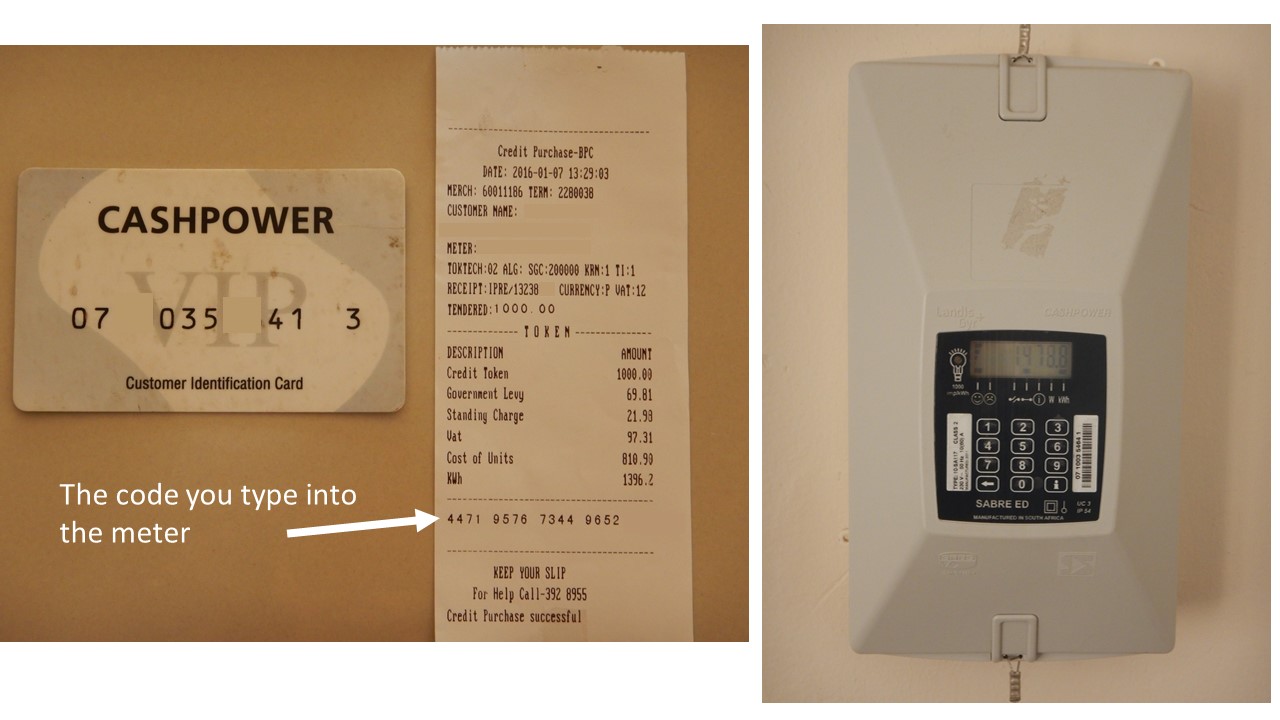Like internet and phone service, electricity is a prepaid utility in Botswana. Who knew! It’s actually very convenient. Unlike the U.S., there is no paperwork whatsoever. Instead, there is an electrical meter installed in my living room. The meter is associated with a plastic card that looks like a simplified credit card with a number printed on it. To prepay my power bill, I take the plastic card to any gas station or grocery store. I give them pula and they give me a paper receipt with a number printed on it. At home, I type this receipt number into my meter box, and voila – I’ve added kwatt hours to my meter. The kwatts count down over time as I use power. I know exactly how much power I use and estimate that expenses will vary from US$50 – $100 per month, depending on AC use. Costs are similar to Tennessee.
Of course the negative is you have to actually go to the store to buy electricity, and if you don’t keep an eye on your meter, you will run out. If that happens the lights just go off – that’s it. And you need to buy more. Then the lights will come on again. Last week this happened with the meter that powers our water pump, so we had no water until the landlord added power to the meter.
But, as a short term resident of Botswana, this arrangement works well. I did not have to set up service with the utility company and I do not have to manage a final bill that comes after I leave.
I wish I had understood this before I arrived in Botswana because it would have changed my interactions with realtors and owners of vacation rentals. Coming from the States, I thought it would be easier if my rent costs included all utilities, including electricity. I imagined the inclusive price would help me avoid utility company paperwork. But people in Botswana thought it was an odd request because there is no such thing as utility company paperwork. Yet, no one explained how it worked because they don’t know about the difference either. So I was none the wiser until I arrived.
